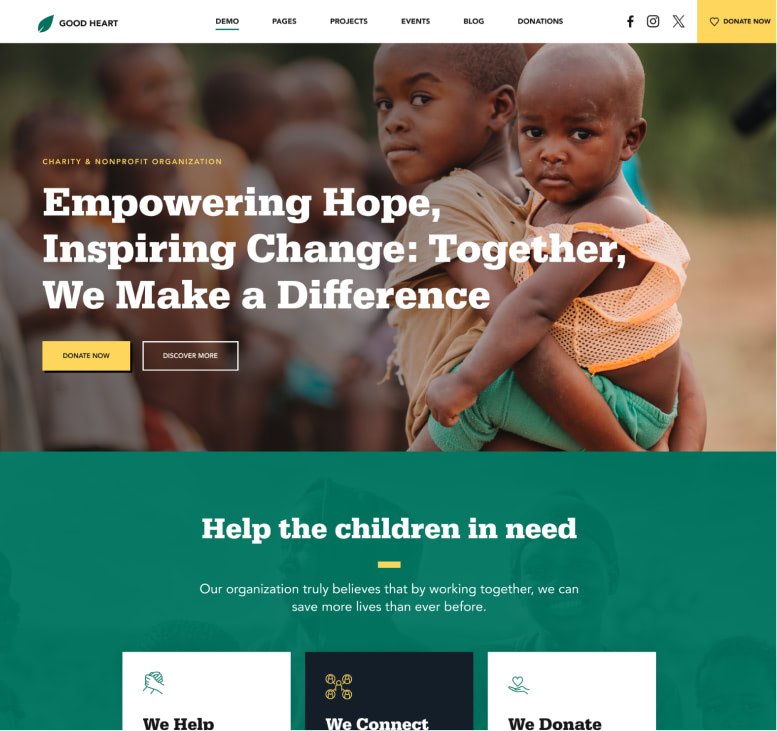Education serves as a fundamental tool for community empowerment, playing a vital role in enhancing individual capabilities and fostering collective progress. By equipping individuals with knowledge and skills, education increases personal agency and enables community members to make informed decisions that positively impact their lives. The transformative power of education is underpinned by the notion that an informed individual is better positioned to contribute to their community’s development.
The enhancement of critical thinking is one of the key benefits of education. It encourages individuals to analyze situations, question assumptions, and develop innovative solutions to the challenges their communities face. For instance, programs that emphasize critical thinking skills have been shown to increase problem-solving abilities among youth, leading to improved participation in community initiatives and governance. This shift not only benefits the individuals but also enhances the community’s overall capacity to address social and economic issues.
Statistical evidence supports the argument that educational initiatives can drastically uplift marginalized and underserved groups. According to a report by UNESCO, every additional year of schooling increases an individual’s income by approximately 10%. This financial improvement translates into better living conditions, healthcare access, and investment in future generations, creating a cycle of empowerment and growth within communities.
Case studies from various regions exemplify this impact. In rural areas of Nigeria, the introduction of educational programs targeting girls resulted in a significant increase in school attendance and retention rates. As a direct outcome, these educated young women became agents of change, advocating for health, sanitation, and family planning within their communities. Such initiatives demonstrate the pivotal role that education plays not only in personal development but also in fostering a cohesive, motivated community.
Innovative Educational Approaches for Community Development
In recent years, a variety of innovative educational approaches have emerged as effective strategies for enhancing community development. Community-based learning has gained prominence, allowing individuals to engage in their local environments while gaining valuable knowledge and skills. This approach fosters a sense of belonging and responsibility, encouraging participants to develop solutions tailored to their community’s specific challenges. By integrating local culture and resources into the educational framework, community-based learning also promotes resilience, empowering individuals to contribute positively to their surroundings.
Vocational training programs represent another significant aspect of innovative education for community development. These programs are designed to equip individuals with practical, job-ready skills that meet local labor market demands. By focusing on specific trades or professions, vocational training addresses the immediate educational needs of individuals while simultaneously enhancing community economic stability. These initiatives have demonstrated an ability to reduce unemployment rates and promote self-sufficiency, making them vital components of sustainable development strategies.
The integration of technology into educational initiatives has further transformed learning in communities, especially in remote or underserved areas. The use of digital tools and resources facilitates access to information and learning materials that may otherwise be unavailable. For example, online platforms for skill development and distance learning programs offer individuals the opportunity to pursue education beyond geographic barriers. Additionally, mobile technology has become instrumental in delivering educational content, enabling communities to bridge the digital divide and improve overall learning outcomes.
These innovative educational strategies not only address immediate educational needs but also bolster long-term community resilience and sustainability. By fostering local engagement, providing essential skills, and leveraging technology, communities can create a more empowered populace capable of tackling various challenges. These combined efforts play a crucial role in shaping a sustainable future, underscoring the importance of education as a foundation for community development.
Role of Local Organizations and Partnerships in Education
Local organizations and partnerships play an indispensable role in the advancement of education within communities, particularly in the context of sustainable development. These entities, including non-governmental organizations (NGOs), community-based organizations, and educational institutions, contribute to the creation and implementation of educational programs that align closely with the unique needs and cultural contexts of the populations they serve. By harnessing local knowledge and expertise, these partnerships can design educational initiatives that are not only relevant but also impactful.
One compelling example of effective collaboration is found in the case of a community-based organization that partnered with a local NGO to improve literacy rates among children in underserved neighborhoods. By conducting thorough needs assessments and engaging community members in the planning process, the organizations were able to tailor reading programs that reflected the linguistic and cultural diversity of the area. This initiative led to significant increases in literacy levels, demonstrating how local involvement can result in more effective educational interventions.
Furthermore, such partnerships foster a sense of ownership among community stakeholders, which is crucial for the sustainability of educational programs. When local organizations involve parents, teachers, and students in the decision-making process, they ensure that the educational content is culturally relevant and meets the specific challenges faced within the community. This collaborative approach not only enhances the relevance of educational programs but also encourages community investment in the success of these initiatives.
In essence, the role of local organizations and partnerships is vital in empowering communities through education. Their ability to engage local stakeholders allows for the development of programs that are not only relevant but also sustainable. By focusing on collaboration within the community, these organizations can create transformative educational experiences that pave the way toward sustainable development.
The Future of Community Empowerment through Education
The future of community empowerment through education is poised for significant transformation as we witness an evolving educational landscape. This evolution is largely driven by the recognition that education is not static; rather, it must adapt to the changing needs of society and individuals. Lifelong learning is becoming recognized as essential for personal and community advancement. It fosters the continuous development of knowledge and skills, enabling community members to stay relevant in an increasingly complex world. Such an approach encourages individuals to pursue education at any stage of life, empowering them to contribute positively to their communities.
Emerging technologies are also set to play a crucial role in reshaping educational methodologies and accessibility. The integration of digital tools and platforms provides avenues for knowledge acquisition that were previously unachievable, particularly in remote or underserved areas. Online learning, virtual reality, and artificial intelligence offer tailored educational experiences that cater to diverse learning styles. With these advancements, communities can bridge gaps in educational resource access, ensuring that more individuals benefit from educational opportunities. This technological integration promotes inclusivity, enhancing the potential for empowering all community members, regardless of background or circumstance.
However, the promise of this future is closely tied to effective policy advocacy that champions inclusive education systems. Policymakers, educators, and community leaders must work collaboratively to implement frameworks that support equitable access to education. By addressing systemic barriers, such as socioeconomic disparities and geographic inequities, communities can work toward fostering environments conducive to learning for everyone. Through sustained efforts, educational institutions can be transformed into hubs of empowerment, equipping individuals with the tools necessary for meaningful participation in their communities and, ultimately, contributing to sustainable development, communities can work toward fostering environments conducive to learning for everyone. Through sustained efforts, educational institutions can be transformed into hubs of empowerment, equipping individuals with the tools necessary for meaningful participation in their communities and, ultimately, contributing to sustainable development.













**mindvault**
mindvault is a premium cognitive support formula created for adults 45+. It’s thoughtfully designed to help maintain clear thinking
**gl pro**
gl pro is a natural dietary supplement designed to promote balanced blood sugar levels and curb sugar cravings.
**sugarmute**
sugarmute is a science-guided nutritional supplement created to help maintain balanced blood sugar while supporting steady energy and mental clarity.
**vittaburn**
vittaburn is a liquid dietary supplement formulated to support healthy weight reduction by increasing metabolic rate, reducing hunger, and promoting fat loss.
**synaptigen**
synaptigen is a next-generation brain support supplement that blends natural nootropics, adaptogens
**glucore**
glucore is a nutritional supplement that is given to patients daily to assist in maintaining healthy blood sugar and metabolic rates.
**prodentim**
prodentim an advanced probiotic formulation designed to support exceptional oral hygiene while fortifying teeth and gums.
**nitric boost**
nitric boost is a dietary formula crafted to enhance vitality and promote overall well-being.
**sleep lean**
sleeplean is a US-trusted, naturally focused nighttime support formula that helps your body burn fat while you rest.
**wildgut**
wildgutis a precision-crafted nutritional blend designed to nurture your dog’s digestive tract.
**mitolyn**
mitolyn a nature-inspired supplement crafted to elevate metabolic activity and support sustainable weight management.
**yusleep**
yusleep is a gentle, nano-enhanced nightly blend designed to help you drift off quickly, stay asleep longer, and wake feeling clear.
**zencortex**
zencortex contains only the natural ingredients that are effective in supporting incredible hearing naturally.
**breathe**
breathe is a plant-powered tincture crafted to promote lung performance and enhance your breathing quality.
**prostadine**
prostadine is a next-generation prostate support formula designed to help maintain, restore, and enhance optimal male prostate performance.
**pinealxt**
pinealxt is a revolutionary supplement that promotes proper pineal gland function and energy levels to support healthy body function.
**energeia**
energeia is the first and only recipe that targets the root cause of stubborn belly fat and Deadly visceral fat.
**prostabliss**
prostabliss is a carefully developed dietary formula aimed at nurturing prostate vitality and improving urinary comfort.
**boostaro**
boostaro is a specially crafted dietary supplement for men who want to elevate their overall health and vitality.
**potent stream**
potent stream is engineered to promote prostate well-being by counteracting the residue that can build up from hard-water minerals within the urinary tract.
**hepatoburn**
hepatoburn is a premium nutritional formula designed to enhance liver function, boost metabolism, and support natural fat breakdown.
**hepatoburn**
hepatoburn is a potent, plant-based formula created to promote optimal liver performance and naturally stimulate fat-burning mechanisms.
**flow force max**
flow force max delivers a forward-thinking, plant-focused way to support prostate health—while also helping maintain everyday energy, libido, and overall vitality.
**neurogenica**
neurogenica is a dietary supplement formulated to support nerve health and ease discomfort associated with neuropathy.
**cellufend**
cellufend is a natural supplement developed to support balanced blood sugar levels through a blend of botanical extracts and essential nutrients.
**prodentim**
prodentim is a forward-thinking oral wellness blend crafted to nurture and maintain a balanced mouth microbiome.
**revitag**
revitag is a daily skin-support formula created to promote a healthy complexion and visibly diminish the appearance of skin tags.
**hepato burn**
hepato burn is a potent, plant-based formula created to promote optimal liver performance and naturally stimulate fat-burning mechanisms.
Tại slot365, người chơi có thể lựa chọn nhiều phương thức thanh toán khác nhau như: thẻ ngân hàng nội địa, ví điện tử, và các cổng thanh toán quốc tế. Điều này giúp dễ dàng lựa chọn phương thức phù hợp với nhu cầu cá nhân mà không gặp khó khăn trong quá trình giao dịch.
Chính thức “chào sân” vào năm 2012, 66b là một nhánh nhỏ trực thuộc sự quản lý của CURACAO Gaming, cơ quan giám sát cờ bạc hàng đầu Châu Á. Ngay từ thời điểm ra mắt, nhà cái chúng tôi đã có trụ sở chính thức tại hai trung tâm cờ bạc lớn nhất Philippines là Manila và Costa Rica.
Thanks for sharing. I read many of your blog posts, cool, your blog is very good.
Can you be more specific about the content of your article? After reading it, I still have some doubts. Hope you can help me.
Your article helped me a lot, is there any more related content? Thanks! https://www.binance.com/fr-AF/register?ref=JHQQKNKN
Can you be more specific about the content of your article? After reading it, I still have some doubts. Hope you can help me.
I don’t think the title of your article matches the content lol. Just kidding, mainly because I had some doubts after reading the article.
Thank you for your sharing. I am worried that I lack creative ideas. It is your article that makes me full of hope. Thank you. But, I have a question, can you help me?
Your article helped me a lot, is there any more related content? Thanks!
Thank you for your sharing. I am worried that I lack creative ideas. It is your article that makes me full of hope. Thank you. But, I have a question, can you help me?
Thanks for sharing. I read many of your blog posts, cool, your blog is very good.
789rpgame… caught my eye. If you are into RPG games you’ll love this place, it has a great selection. You might love it if you gave it a chance. Give your luck right now 789rpgame
Thanks for sharing. I read many of your blog posts, cool, your blog is very good.